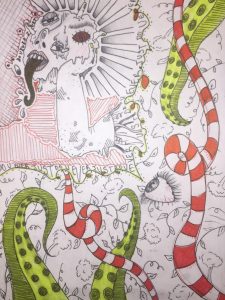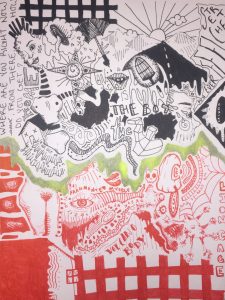As a person who now writes fiction sometimes I am hesitant into where it falls in regard to poetry. I remember once writing a poem that was in the early stages of editing. One of the things that drew me to edit this poem further was that I wrote it purposefully with a feel-good moment, that made me feel joy later when I reread it to myself. When one of my friends (@Grace) read it I could see her smile form as I followed her eyes down the stanzas. At the end, she asked me, was this a memory of you are you sister, right? When I told her that the poem was a work of fiction she looked taken aback for she felt that real emotion was there, I think there was too. I think that’s an interesting aspect of poetry, that it can include fiction or nonfiction without stating it explicitly to the reader. As someone who involves both fiction and nonfiction in my poems, it’s interesting to think that the reader may try to tell the difference since a lot of poems tend to engage us emotionally speaking.
Poems are vessels that can be used to hold emotion, even if we do not experience the literal aspect of the poems in real life. I like to think of my poems like a sample size perfume. You get the scent and know what it is going for (hopefully), you know how the lines are trying to reach into your mind and activate something that the author could never guess was there.
In poetry, often I use what I have learned from fiction writing to draw up an intimate world, that at its core, is powered by the desired feeling. I hope this doesn’t make me an artificial poet, that I can recreate events that have no technical connection to me, scenes that read as non-fiction that isn’t, hugs between imagined siblings that are inspired by my own love of my sister and our childhood innocence.


